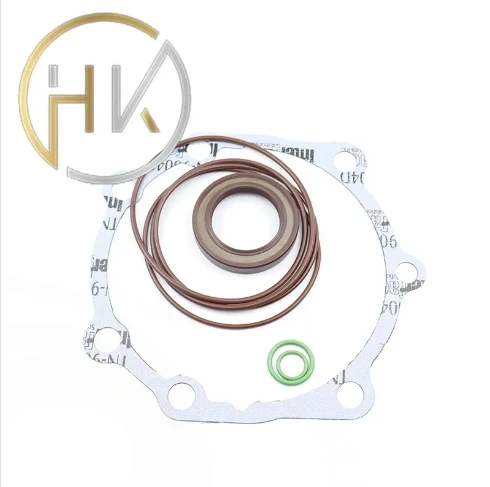Nov . 09, 2024 19:57 Back to list
Optimizing Motor Seals for Enhanced Durability and Performance in Various Applications
Understanding Motor Seals Importance, Types, and Applications
Motor seals play a crucial role in the efficiency and longevity of various machinery and vehicles. These essential components ensure that motors operate smoothly by preventing the leakage of fluids and contaminants while maintaining the proper functioning of the entire system. As the demand for high-performance motors increases across various industries, understanding the significance of motor seals has become imperative.
The Role of Motor Seals
Motor seals serve multiple functions within a motor system. Primarily, they act as barriers that keep lubricating oils, coolant fluids, and other vital substances contained within the motor. This containment is crucial for the efficient operation of the engine or motor, as leakage could lead to a decrease in performance, increased wear and tear, or even catastrophic failure.
Moreover, motor seals protect internal components from external contaminants, such as dirt, dust, and moisture. By preventing these harmful substances from entering the motor, seals help maintain optimal operating conditions and extend the life of the machinery.
Types of Motor Seals
There are several types of motor seals, each designed to meet specific operational requirements. Some of the most common types include
1. Oil Seals Also known as rotary shaft seals, these are specifically designed to retain oil in rotating assemblies. They have a lip that makes contact with the shaft, creating a tight seal that prevents oil leakage.
2. O-Rings These circular seals are made from various materials, including rubber and silicone, and are used in static and dynamic applications. They are highly versatile and can be found in many motor assemblies, providing excellent sealing capabilities.
3. Gasket Seals Gaskets are flat seals made from compressible materials. They are typically used between two flat surfaces to provide a leak-proof seal. In motors, gaskets are commonly found in areas such as cylinder heads and oil pans.
motor seal

4. Mechanical Seals Used primarily in pumps and compressors, mechanical seals consist of a combination of rotating and stationary components. They provide a reliable sealing solution for high-pressure applications.
5. Lip Seals These seals use a flexible lip to create a seal against a shaft or bore, preventing fluid leakage. They are commonly used in automotive applications, particularly in wheel bearings and differential assemblies.
Material Considerations
The material from which motor seals are made is critical to their performance. Common materials include elastomers like nitrile, fluorocarbon, and silicone, each offering different resistance levels to heat, chemicals, and wear. For instance, fluorocarbon seals are often used in high-temperature applications because they can withstand extreme conditions better than standard rubber seals.
Applications of Motor Seals
Motor seals are employed in a vast range of applications spanning multiple industries. In automotive design, they are essential components found in engines, transmissions, and wheel assemblies. Similarly, in industrial machinery, motor seals play a vital role in ensuring the reliability of motors used in manufacturing processes, conveyors, and pumps.
In the aerospace industry, where precision and reliability are paramount, motor seals are critical in aircraft engines and hydraulic systems, ensuring optimal performance under extreme conditions. The energy sector, particularly in oil and gas extraction, also relies on robust sealing solutions to prevent leaks and maintain safety standards.
Conclusion
Motor seals are integral components that ensure the efficient operation of various machines and vehicles. Their ability to prevent leaks and block contaminants significantly impacts the performance, reliability, and longevity of motor systems. With diverse types and materials available to suit different applications, understanding the importance of motor seals is vital for engineers, manufacturers, and end-users alike.
In a world driven by machinery and technology, the significance of these small yet critical components cannot be overstated. As we continue to innovate and push the boundaries of engineering, motor seals will remain at the forefront, ensuring that motors and engines operate at their best, ultimately leading to enhanced productivity and safety across industries.
-
Wiper Oil Seal: Our Commitment to Clean Hydraulics
NewsAug.13,2025
-
Hydraulic Oil Seal for Self Discharging Cars
NewsAug.13,2025
-
Hub Oil Seal for Agricultural Tractor Hubs
NewsAug.13,2025
-
Skeleton Oil Seal with NBR Material
NewsAug.13,2025
-
Rotary Lip Seal for High Pressure Applications
NewsAug.13,2025
-
Cylinder Seal Kits Our Legacy of Hydraulic Trust
NewsAug.13,2025
-
Unlocking the Potential of Hydraulic Systems with Essential Sealing Solutions
NewsAug.06,2025
Products categories
















